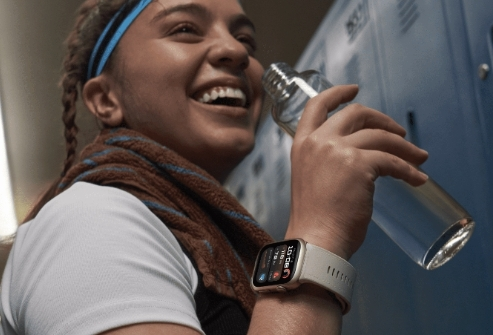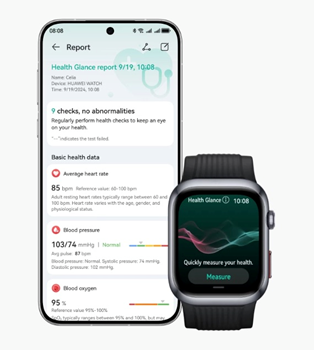Processed
foods are a staple in many diets worldwide, offering convenience and longer
shelf lives, but their hidden dangers to health, particularly blood pressure,
are alarming. Hypertension, often called the "silent killer," is a
global health crisis, and the consumption of processed foods is a significant
contributing factor. These foods are typically high in sodium, added sugars,
and unhealthy fats, all of which disrupt the delicate balance required for
healthy blood pressure regulation. Thankfully, advancements in health
technology, such as wearable blood pressure monitors, make it easier than ever
to track and manage blood pressure. This article explores how processed foods
affect blood pressure, why regular monitoring is crucial, and what healthier alternatives
can support long-term health.

How Processed Foods Affect Blood Pressure
Sodium Overload and Its Impact on Hypertension
Sodium
is one of the most prevalent ingredients in processed foods, from frozen
dinners to snack chips. While sodium is essential for bodily functions in small
amounts, excessive intake leads to water retention, increasing blood volume
and, consequently, blood pressure. Over time, this places undue strain on blood
vessels, heightening the risk of heart attacks, strokes, and kidney disease.
The World Health Organization (WHO) recommends consuming less than 2,300
milligrams of sodium daily, roughly one teaspoon of salt. However, the average
diet far exceeds this due to hidden sodium in processed foods, making it
essential to limit their consumption and read nutrition labels carefully.
Added Sugars and Their Role in Blood Pressure
Spikes
Processed
foods are also loaded with added sugars, commonly found in sweetened beverages,
baked goods, and packaged snacks. While sugar is often associated with weight
gain and diabetes, it also directly affects blood pressure. Excess sugar
consumption can lead to insulin resistance, increased heart rate, and elevated
blood pressure levels. Research indicates that diets high in sugar are linked
to higher systolic and diastolic blood pressure. Cutting back on processed
sugary foods not only reduces hypertension risks but also promotes better
energy levels and metabolic health. Replacing sugary snacks with natural
alternatives, like fruits, is a step toward stabilizing blood pressure.
Common Processed Foods to Watch Out For
Processed
foods are everywhere, making it challenging to avoid them entirely. However,
identifying the biggest offenders can help mitigate their impact on blood
pressure. Packaged meals, such as instant noodles, canned soups, and frozen
pizzas, are notorious for their high sodium content. Deli meats, sausages, and
other processed meats also contain added salts and preservatives that
exacerbate hypertension risks. Even
seemingly healthy options, such as flavored yogurt, granola bars, and salad
dressings, often hide significant amounts of sodium and sugar. Fast food is
another major contributor, with items like burgers, fries, and sodas combining
high sodium, sugar, and unhealthy fats into one meal. Making an effort to
prepare meals at home and choosing fresh, whole ingredients can drastically
reduce reliance on processed foods and improve overall health.
Blood Pressure Monitoring: Why It’s Crucial
How Regular Monitoring Helps Detect Changes Early
Blood
pressure is one of the most important indicators of cardiovascular health.
Regular monitoring allows individuals to detect changes early, often before
symptoms appear. Hypertension typically develops gradually, and without
consistent monitoring, many people remain unaware of their condition until it
leads to severe complications, such as heart attacks or strokes. By
establishing a routine for checking blood pressure, individuals gain valuable
insight into their health trends, enabling them to identify triggers and take
preventive actions. Moreover, it is also crucial to adjust one’s diet based on
blood pressure readings, as certain foods can either worsen or alleviate
hypertension.
Tools and Tips for Accurate Blood Pressure
Monitoring
Accurate
blood pressure monitoring requires reliable tools, and wearables like the
HUAWEI WATCH D2 provide an innovative solution. This smartwatch offers dynamic
blood pressure monitoring, featuring 24-hour automatic measurement that tracks
levels during various activities, including sleep. With real-time updates on
systolic and diastolic blood pressure, users can maintain better awareness of
their cardiovascular health. The HUAWEI WATCH D2 also provides weekly blood
pressure reports, allowing users to observe trends and receive personalized
health tips. Its advanced features extend to comprehensive sleep monitoring and
ECG analysis, making it a holistic health management device. Together, these
features empower users to take charge of their well-being effortlessly.
Healthy Alternatives to Processed Foods
Transitioning
to a diet rich in whole, unprocessed foods is one of the most effective ways to
manage blood pressure. Fresh vegetables, fruits, lean proteins, and whole
grains provide essential nutrients without the excessive sodium and sugars
found in processed foods. For instance, substituting fresh, home-cooked meals
for frozen dinners gives you control over seasoning and ingredient quality.
Adopting simple habits, like cooking with herbs and spices instead of salt and
choosing unsweetened beverages, can also make a big difference. When
considering beverages, drinking coffee blood pressure is worth noting. Studies suggest that while coffee
might cause a temporary increase in blood pressure, moderate consumption has
been linked to cardiovascular benefits. Understanding how coffee interacts with
your body can help you balance its effects on your health.

Conclusion
Processed
foods significantly impact blood pressure, yet with informed choices, the risks
can be mitigated. Emphasizing whole, unprocessed foods, understanding sodium
and sugar's role in hypertension, and staying mindful of daily habits are
critical steps in protecting heart health. Equally important is regular
monitoring, made more convenient by innovations like the HUAWEI WATCH D2, which
provides dynamic and comprehensive health tracking. By combining dietary
awareness with consistent monitoring and adopting a balanced lifestyle,
individuals can take proactive steps toward better health, effectively managing
blood pressure and reducing the risk of chronic conditions. Balance, awareness,
and technology-driven tools form the foundation for sustained wellness in
today’s fast-paced world.
